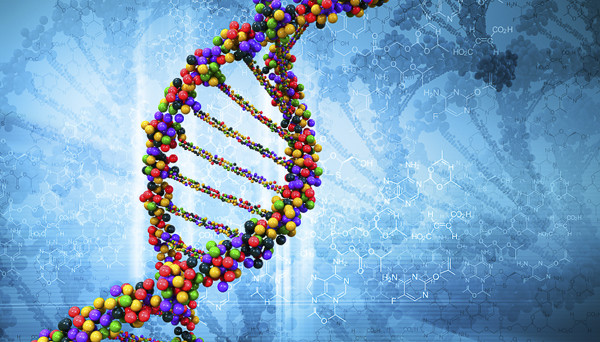
How did you become interested in genetics?
When I was 14 or 15, my biology teacher at school mentioned the books ‘The selfish gene’ and ‘The blind watchmaker’ by Richard Dawkins. I read both and was hooked. I was fascinated by the idea that we are in large part controlled by our genes, which have been honed over millions of years of evolution to maximize their chances of being passed on to the next generation.
I started thinking about everything in terms of genes and evolution, how even complex behaviors – like how altruistic we are towards others – might be determined by our genes.
Why is it important to raise the awareness of genetics to a wider audience?
The practical applications of genetics already affect people’s lives and are going to do so increasingly in the future.
The practical applications of genetics already affect people’s lives and are going to do so increasingly in the future. For example, advances in technology mean that it may well be feasible soon for everyone living in a developed country to have their genome sequenced.
A lot of the findings from that sequencing are going to be hard to interpret if you don’t have a basic grasp of genetics. For example, even if you don’t have a genetic disease, you will almost certainly have a whole load of medically relevant variations in your genome, which will each give you increased or decreased risk of developing various diseases.
People will need to be able to understand enough genetics to decide which of those findings they actually want to do something about.
What do you feel are the most common misconceptions about genetics?
The classic misconception is that there are genes ‘for’ something. For example, you might hear in the news about a gene ‘for’ heart disease. This is very misleading as the vast majority of genes are present in everyone.
So we all have the genes ‘for’ heart disease, but our actual genetic risk of getting heart disease depends on the particular versions of those genes that we carry. It’s understandable that this shorthand is used in the media to keep things simple, but it really doesn’t help with genetic literacy.
Another misconception is that genetics is so complicated that it’s not worth a layperson trying to understand it.
Another misconception is that genetics is so complicated that it’s not worth a layperson trying to understand it. Sure, genetics can get very complicated if you’re involved in cutting edge research, but the basics are well within most people’s grasp.
Once you’ve learned a few key terms, it’s mostly a matter of understanding simple probabilities. No more complicated than betting on horse-racing, for example.
What is gene editing and what does it mean for genetics?
There is now a new toolkit for editing genes called CRISPR technology. Previously, it was very hard to modify genes precisely, and that limited what could be done with genetic engineering. But now with CRISPR we can go in and change just one letter of the DNA code in a specific gene (as well as making other types of changes). This has huge implications in many areas (shown here and here).
There is a lot of excitement – and controversy – about medical applications of CRISPR. For example, there is the potential to eradicate some genetic diseases by going into embryos and using CRISPR to correct the genetic mistakes that cause the disease.
As beneficial as that may be, there are also huge concerns about how far we should go with modifying embryos. For example, would it be acceptable for parents to ask for their future children to be genetically edited to give them as high an IQ as possible?
What do you think are the most exciting future areas for genetics research?
The big change over the last decade or so has been the huge advance made in reading genomes using DNA sequencing. That technology has become so cheap and fast that it’s transformed pretty much every area of genetics.
Conversely, being able to ‘write’ genomes would shake things up all over again. Researchers would be able to engineer altered or entirely new organisms from scratch, and that would allow a much deeper understanding of how the genome really works.
It would also pave the way for a new wave of ‘designer’ organisms that could do completely new things – for example, synthesize new biological products. The technology isn’t there yet to make writing DNA a routine tool for researchers, but that could well be the next big advance.
Do you have any current favorite articles on genetics?
A very interesting paper was published earlier this month on resilience to genetic diseases.
A very interesting paper was published earlier this month on resilience to genetic diseases. The researchers were looking at genetic mutations like those that cause cystic fibrosis, where the received wisdom is that if you have the mutation then you have the disease.
They looked at the genomes of a huge number of people – close to 600,000 – and found 13 people who in theory should have serious diseases but who are actually healthy.
There’s a lot of excitement that these people might have other genetic variations that prevent them from having the disease. If we can figure out what these are then we will have new clues about possible treatments and how genetic diseases occur.
You can read our top DNA research articles and take our DNA Quiz by clicking the link here.
Louisa Flintoft
Latest posts by Louisa Flintoft (see all)
- Ahead of the curve: embracing preprints - 14th December 2016
- The Human Cell Atlas: an audacious step towards self-knowledge - 18th October 2016
- Ask a geneticist: a Q+A with Louisa Flintoft - 22nd April 2016
Comments